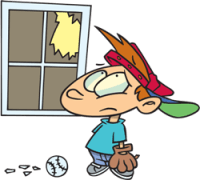Discurso indirecto
discurso directo y
discurso indirecto (discurso reportado)
Tabla de contenidos de discurso indirecto:
- Resumen y definiciones
- Verbos comunicadores
- Usando la palabra THAT
- Discurso indirecto - cambios
- Pronombres
- Verbos en tercera persona singular
- Expresiones de lugar y de tiempo
- Paso atrás de tiempo verbal
- Sin paso atrás de tiempo verbal
- Preguntas reportadas
- Órdenes y pedidos reportados
Click Here for Step-by-Step Rules, Stories and Exercises to Practice All English Tenses
Resumen y definiciones
El discurso directo significa decir exactamente lo que dijo otra persona. Normalmente se coloca entre
comillas (". . ."). | I
have the package. (Tengo el paquete.) |
 |
| He
says, "I have the package." (Dice, "Tengo el paquete".) |
 |
El discurso indirecto (también llamado discurso reportado) significa decir lo dijo alguien más sin citar exactamente lo que dijo. Esto quiere decir que no necesariamente usas sus palabras.
No usas comillas con discurso indirecto.
| I
have the package. (Tengo el paquete.) |
 |
| He
says he has the package. (Dice que tiene el paquete.) |
 |
Verbos comunicadores
Para reportar lo que alguien dijo normalmente usamos verbos como:Say, tell, ask, explain, request, etc.
(Decir, contar, preguntar, explicar, pedir, etc.)
Por ejemplo:
- She says we should go.
(Dice que deberíamos ir.)
- They told us to bring our stuff.
(Nos dijeron que lleváramos nuestras cosas.)
- He asked them the time.
(Les preguntó la hora.)
- I explained the rules to her.
(Le expliqué las reglas.)
La palabra THAT
La palabra THAT puede ser usada después de un verbo comunicador para empezar la afirmación. Pero recuerda – es opcional.Puedes usarla u omitirla, como prefieres.
Por ejemplo:
- She says they are full = She says that they are
full
(Dice que están llenos)
- I told them we could help = I told them that we could
help
(Les dije que podríamos ayudar)
- I suggest we start = I suggest that we start
(Sugiero que empecemos)
Cómo reportar
Cuando citas lo que otra persona dijo (discurso directo) es muy simple: no cambia nada y pones la oración entre comillas.Pero cuando reportas una oración (cuando la cuentas en tus propias palabras), obviamente hay algunos cambios necesarios.
Discurso indirecto - cambios
Pronombres
Si hay algún pronombre presente, tal vez tengas que cambiarlo.Ejemplos sobre cuándo y cómo cambiar pronombres:
| Discurso directo | Discurso indirecto |
| She says, "I like ice
cream." (Dice, "Me gusta el helado".) |
She says she likes ice cream.
(Dice que le gusta el helado.) |
| They say, "You are
right." (Dicen, "Tienen razón".) |
They say we are right. (Dicen que tenemos razón.) |
| He says, "My name is
Gary." (Dice, "Mi nombre es Gary".) |
He says his name is Gary.
(Dice que su nombre es Gary.) |
Verbos en tercera persona singular
Los verbos en la forma de la tercera persona singular normalmente tienen una S al final:I cook => He cooks
(Yo cocino => Él cocina)
We talk => She talks
(Nosotros hablamos => Ella habla)
You have => It has
(Tú tienes => Él tiene)
I am => He is
(Yo soy => Él es)
Entonces cuando reportamos una oración debemos aplicar esta regla.
Ejemplos de cuándo y cómo cambiar los verbos:
| Discurso directo | Discurso indirecto |
| He says, "I work every
day." (Dice, "Trabajo todos los días".) |
He says he works every
day. (Dice que trabaja todos los días.) |
| She says, "I am a big
girl." (Dice, "Soy una chica grande".) |
She says she is a big girl.
(Dice que es una chica grande.) |
| Bonnie says, "I have a
question." (Bonnie dice, "Tengo una pregunta".) |
Bonnie says she has a
question. (Bonnie dice que tiene una pregunta.) |
Expresiones de lugar y de tiempo
En muchos casos, cuando reportas lo que alguien ha dicho estás en un lugar diferente y casi siempre en otro momento (normalmente reportamos en el presente lo que alguien nos contó antes, en el pasado).Entonces debemos cambiar el lugar y el tiempo de acuerdo con esto.
Ejemplos de cuándo y cómo cambiar expresiones de lugar y de tiempo:
| Discurso directo | Discurso indirecto |
| She said, "I work here." (Dijo, "Trabajo aquí.") |
She said she worked there.
(Dijo que trabaja allí.) |
| They said, "We are eating now." (Dijeron, "Estamos comiendo ahora".) |
They said they were eating then. (Dijeron que estaban comiendo en ese momento.) |
| You said, "She sings today."
(Dijiste, "Ella canta hoy".) |
You said she sang that
day. (Dijiste que ella cantaba ese día.) |
| He said, "I will come tomorrow." (Dijo, "Vendré mañana".) |
He said he would come the following day. (Dijo que vendría el día siguiente.) |
Una lista de expresiones de lugar y de tiempo comunes
| this (este / esta) |
that (ese / esa) |
| these (estos / estas) |
those (esos / esas) |
| here (aquí) |
there (allí) |
| now (ahora) |
then / at the time (entonces / en ese momento) |
| today (hoy) |
that day / yesterday (ese día / ayer) |
| yesterday (ayer) |
the day before / the previous day (el día anterior) |
| a week ago / last week (hace una semana / la semana pasada) |
a week before / the previous week (una semana antes / la semana anterior) |
| last month (el mes pasado) |
the month before / the previous month (el mes anterior) |
| next year (el año que viene) |
the following year (el otro año) |
| in three years (en tres años) |
three years from then (tres años después) |
Nota: Con estas cosas, siempre usa tu sentido común. Si estás reportando algo que alguien dijo hace diez minutos y tu ubicación y el período de tiempo todavía son los mismos, no cambies estas expresiones de lugar y de tiempo.
Por ejemplo:
| Discurso directo | Discurso indirecto |
| Ten minutes ago you said, "We have a lot of work today." (Hace diez minutos dijiste, "Tenemos mucho trabajo hoy".) |
Ten minutes ago you said we had a lot of work today. (Hace diez minutos dijiste que teníamos mucho trabajo hoy.) |
Paso atrás de tiempo verbal
El paso atrás es el cambio de tiempo verbal cuando reportamos lo
que alguien dijo.Cuando reportas lo que alguien dijo en el pasado los tiempos verbales de los verbos en la oración reportada toman un paso atrás.
| I
am sorry. (Lo siento.) |
 |
| He
said he was sorry. (Dijo que lo sentía.) |

|
Aquí hay algunos ejemplos más:
| Discurso directo | Discurso indirecto |
| You said, "We are late."
(Dijiste, "Estamos llegando tarde".) |
You said we were late.
(Dijiste que estábamos llegando tarde.) |
| They said, "We have plans."
(Dijeron, "Tenemos planes".) |
They said they had plans.
(Dijeron que tenían planes.) |
| He said, "I work hard." (Dijo, "Trabajo duro".) |
He said he worked hard. (Dijo que trabajaba duro.) |
| She said, "I drink
water." (Dijo, "Tomo agua".) |
She said she drank water. (Dijo que tomaba agua.) |
El paso atrás de tiempo verbal funciona así:
| Discurso directo | Discurso indirecto |
Presente simple |
Pasado simple |
| He said, "I eat
cheese." (Dijo, "Como queso".) |
He said he ate
cheese. (Dijo que comía queso.) |
Presente progresivo |
Pasado progresivo |
| He said, "I am
eating cheese." (Dijo, "Estoy comiendo queso".) |
He said he was
eating cheese. (Dijo que estaba comiendo queso.) |
Presente perfecto |
Pasado perfecto |
| He said, "I have
eaten cheese." (Dijo, "He comido queso".) |
He said he had eaten
cheese. (Dijo que había comido queso.) |
Presente perfecto progresivo |
Pasado perfecto progresivo |
| He said, "I have been eating cheese." (Dijo, "He estado comiendo queso".) |
He said he had been eating cheese. (Dijo que había estado comiendo queso.) |
Pasado simple |
Pasado perfecto |
| He said,
"I ate
cheese." (Dijo, "Comí queso".) |
He said he had eaten
cheese. (Dijo que había comido queso.) |
Pasado progresivo |
Pasado perfecto progresivo |
| He said, "I was
eating cheese." (Dijo, "Estaba comiendo queso".) |
He said he had been
eating cheese. (Dijo que había estado comiendo queso.) |
Pasado perfecto |
Pasado perfecto (sin cambio) |
| He said, "I had
eaten cheese." (Dijo, "Había comido queso".) |
He said he had eaten
cheese. (Dijo que había comido queso.) |
Pasado perfecto progresivo |
Pasado perfecto progresivo (sin cambio) |
| He said, "I had been eating cheese." (Dijo, "Había estado comiendo queso".) |
He said he had been eating cheese. (Dijo que había estado comiendo queso.) |
El paso atrás también funciona con ciertos verbos modales:
| Discurso directo | Discurso indirecto |
| Will | Would |
| She said, "I will
eat cheese." (Dijo, "Comeré queso".) |
She said she would
eat cheese. (Dijo que comería queso.) |
Can |
Could |
| She said, "I can eat
cheese." (Dijo, "Puedo comer queso".) |
She said she could
eat cheese. (Dijo que podía comer queso.) |
Must |
Had to |
| She said, "I must
eat cheese." (Dijo, "Debo comer queso".) |
She said she had to
eat cheese. (Dijo que tenía que comer queso.) |
Shall |
Would |
| She said, "I shall
eat cheese." (Dijo, "Comeré queso".) |
She said she would
eat cheese. (Dijo que comería queso.) |
May |
Might |
| She said, "I may eat
cheese." (Dijo, "Tal vez coma queso".) |
She said she might
eat cheese. (Dijo que tal vez comería queso.) |
No hay NINGÚN CAMBIO con los siguientes verbos modales:
| Discurso directo | Discurso indirecto |
Would |
|
| She said, "I would
eat cheese." (Dijo, "Comería queso".) |
She said she would
eat cheese. (Dijo que comería queso.) |
Could |
|
| She said, "I could
eat cheese." (Dijo, "Podría comer queso".) |
She said she could
eat cheese. (Dijo que podía comer queso.) |
Should |
|
| She said, "I should
eat cheese." (Dijo, "Debería comer queso".) |
She said she should
eat cheese. (Dijo que debería comer queso.) |
Might |
|
| She said, "I might
eat cheese." (Dijo, "Tal vez coma queso".) |
She said she might
eat cheese. (Dijo que tal vez comería queso.) |
Ought to |
|
| She said, "I ought
to eat cheese." (Dijo, "Debería comer queso".) |
She said she ought
to eat cheese. (Dijo que debería comer queso.") |
Sin paso atrás de tiempo verbal
Cuando el verbo comunicador está en el pasado simple los verbos en la oración reportada normalmente toman un paso atrás.No obstante, si estás reportando hechos o algo que todavía es verdad puedes dejar los verbos en el presente:
| Discurso directo | Discurso indirecto |
| You said, "The Earth is
round." (Dijiste, "El planta Tierra es redondo".) |
You said the Earth is
round. (Dijiste que el planta Tierra es redondo.) O You said the Earth was round. (Dijiste que el planeta Tierra era redondo.) |
| I said, "Rome is in Italy."
(Dije, "Roma queda en Italia".) |
I said Rome is in Italy. (Dije que Roma queda en Italia.) O I said Rome was in Italy. (Dije que Roma quedaba en Italia.) |
| She said, "People sleep at
night." (Dijo, "La gente duerme de noche".) |
She said people sleep at
night. (Dijo que la gente duerme de noche.) O She said people slept at night. (Dijo que la gente dormía de noche.) |
Además si el verbo comunicador está en el presente simple, el presente perfecto o el futuro, no hay un paso atrás de tiempo verbal:
| Discurso directo | Discurso indirecto |
| You say, "I jog daily." (Dices, "Salgo a correr a diario".) |
You say you jog daily.
(Dices que sales a correr diario.) |
| You have said, "I jog daily."
(Has dicho, "Salgo a correr diario".) |
You have said you jog
daily. (Has dicho que sales a correr diario.) |
| You will say, "I jog
daily." (Dirás, "Salgo a correr diario".) |
You will say you jog daily.
(Dirás que sales a correr diario.) |
Preguntas reportadas
Cuando reportas una pregunta, también deberías cambiar la pregunta para
que sea una pregunta indirecta. En otras palabras, debes cambiar esta
oración para que sea una oración afirmativa normal, no una pregunta.Puedes usar las palabras if o whether para preguntas SÍ / NO.
| Discurso directo | Discurso indirecto |
| She asked, "Are you well?" (Preguntó, "¿Estás bien?".) |
She asked if I was
well. (Preguntó si estaba bien.) |
| "Where do you live?" he asked me. ("¿Donde vives?", me preguntó.) | He asked me where I lived. (Me preguntó dónde vivía.) |
| "Why don't we meet?" she asked me. ("¿Por qué no nos vemos?", me preguntó.) |
She asked me why we didn't meet. (Me preguntó por qué no nos veíamos.) |
| I asked, "How does she make them?" (Pregunté, "Cómo los hace?".) |
I asked how she made them. (Pregunté cómo los hacía.) |
| They asked, "Where is the mall?" (Preguntaron, "¿Dónde queda el centro comercial?".) |
They asked where the mall is. (Preguntaron dónde queda el centro comercial.) |
Órdenes y pedidos reportados
Cuando reportamos una orden o un pedido usamos un infinitivo.| Discurso directo | Discurso indirecto |
| "Go home," she told me.
("Vete para tu casa", me dijo.) |
She told me to go home. (Me dijo que me fuera para mi casa.) |
| "Start talking," he told
us. ("Empiecen a hablar", nos dijo.) |
He told us to start
talking. (Nos dijo que empezáramos a hablar.) |
| "Stop right there," they
ordered us. ("Paren ahí mismo", nos ordenaron.) |
They ordered us to stop right there. (Nos ordenaron que paráramos ahí mismo.) |
| "Could you please open the
door?" she asked me. ("¿Podrías abrir la puerta, por favor?", me pidió.) |
She asked me to open the
door. (Mi pidió que abriera la puerta.) |
| "Don't shout," I asked. ("No griten", pedí.) |
I asked them not to
shout. (Les pedí que no gritaran.) |
Get Updates, Special Offers, and English Resources
Download your FREE GIFT (the first two chapters of
English Short Stories Book and Workbook)
as soon as you join!

By submitting your email, you consent to receiving updates and newsletters from us and to the sharing of your personal data with third parties for the purposes of sending you communications. We will not spam you. You can unsubscribe at any time. For more information, please see our privacy policy.
Volver de Discurso directo y
discurso indirecto
a Gramática inglesa fácil





